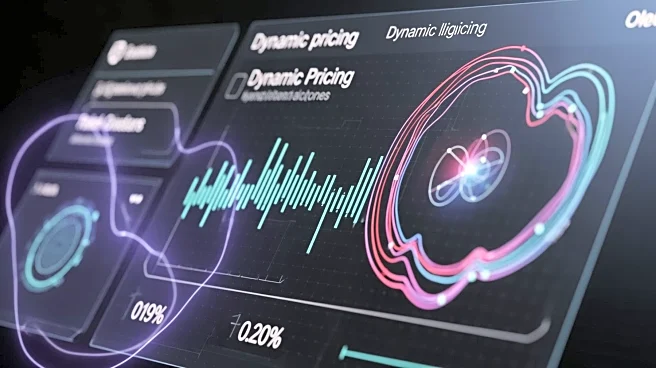What's Happening?
Uber and DoorDash have begun disclosing when algorithms set prices for their services in response to New York's Algorithmic Pricing Disclosure Act. This law requires businesses to inform customers when personal
data is used to determine pricing. Uber's ride-hailing service has adopted upfront pricing, which uses data from past trips to set prices, a strategy that has contributed to its profitability. The disclosure informs users that their location and past orders are used to calculate fees and savings, although the specifics of how these algorithms work remain unclear.
Why It's Important?
The implementation of algorithmic pricing disclosures marks a significant step towards transparency in the gig economy, potentially affecting consumer trust and regulatory practices. By revealing the use of personal data in pricing, companies like Uber and DoorDash may face increased scrutiny over privacy concerns and data usage. This move could influence other states to adopt similar regulations, impacting how businesses operate nationwide. Consumers may benefit from greater awareness of how their data influences pricing, potentially leading to more informed choices.
What's Next?
As New York's law takes effect, other states may consider similar legislation, prompting companies to adjust their pricing strategies and disclosures. The transparency initiative could lead to further regulatory actions aimed at protecting consumer data and ensuring fair pricing practices. Businesses might need to refine their algorithms to balance profitability with compliance, while consumers could demand more clarity on data usage. The ongoing dialogue between regulators, companies, and consumers will likely shape the future of algorithmic pricing in the gig economy.










